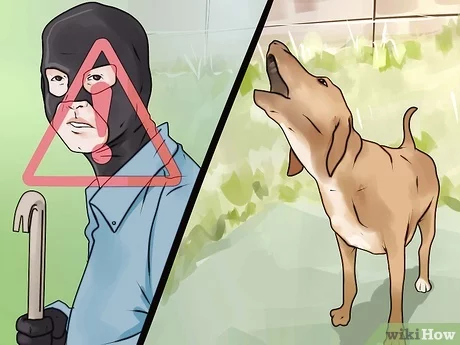What Happens If A Dog Eats Tylenol
When Fido Finds Tylenol: A Guide for Dog Owners
Dogs are curious creatures, and they love to explore their environment with their noses and mouths. However, this natural behavior can sometimes lead them into trouble, especially if they ingest something that is toxic or harmful to their health. One common household item that can be dangerous for dogs is Tylenol, a popular pain reliever that contains acetaminophen. In this article, we will explain what happens if a dog eats Tylenol, how to recognize the symptoms of acetaminophen toxicity in dogs, and what to do if your dog has ingested Tylenol.
What is Tylenol?
Tylenol is a brand name for a medication called acetaminophen, which belongs to a class of drugs known as analgesics or painkillers. Acetaminophen works by blocking the production of certain chemicals in the body that signal pain and inflammation. It is commonly used to relieve mild to moderate pain, fever, and headache in humans. However, it should not be given to dogs or other animals without veterinary approval, as it can have serious side effects.
What happens if a dog eats Tylenol?
If a dog eats Tylenol, it can cause several adverse reactions that can affect its liver, kidneys, blood cells, and respiratory system. Acetaminophen toxicity in dogs can occur within hours or days of ingestion, depending on the amount consumed and the size and age of the dog. Some of the most common signs of Tylenol poisoning in dogs include:
– Vomiting
– Diarrhea
– Loss of appetite
– Abdominal pain
– Lethargy
– Depression
– Weakness
– Difficulty breathing
– Pale gums
– Jaundice (yellowing of the skin and eyes)
– Swollen face or paws
– Blood in the urine or feces
– Seizures
– Coma
If your dog shows any of these symptoms after eating Tylenol, you should seek veterinary attention immediately. Acetaminophen poisoning can be fatal if left untreated or if not treated promptly and properly.
Why is Tylenol toxic to dogs?
Tylenol is toxic to dogs because their bodies cannot metabolize acetaminophen as effectively as humans can. Dogs lack certain enzymes that are necessary to break down acetaminophen into harmless byproducts, such as sulfate and glucuronide conjugates. Instead, acetaminophen is converted into a toxic metabolite called N-acetyl-p-benzoquinone imine (NAPQI), which can damage the liver and other organs. NAPQI reacts with cellular proteins and DNA, depletes glutathione, an antioxidant that protects cells from oxidative stress, and causes oxidative damage to cells and tissues.
Moreover, dogs have a higher concentration of hemoglobin in their blood than humans do. Hemoglobin is a protein that carries oxygen from the lungs to the tissues and removes carbon dioxide from the tissues to the lungs. However, hemoglobin also binds with NAPQI and forms methemoglobin, a dysfunctional form of hemoglobin that cannot carry oxygen effectively. Methemoglobinemia can lead to hypoxia (oxygen deprivation) in the body’s vital organs, such as the brain and heart.
How much Tylenol can kill a dog?
The amount of Tylenol that can kill a dog depends on several factors, including its weight, age, health status, and sensitivity to acetaminophen. Generally speaking, even a small amount of Tylenol can pose a risk to a dog’s health, especially if it is taken repeatedly or in combination with other medications or toxins. According to some sources, the lethal dose of acetaminophen for dogs is about 75 to 100 mg/kg, which means that a 10-pound dog could die from ingesting just one extra-strength Tylenol tablet (500 mg).
However, the toxic effects of Tylenol on dogs can vary widely and may not always be predictable. Some dogs may show signs of poisoning at lower doses, while others may tolerate higher doses without apparent symptoms. Therefore, it is best to avoid giving Tylenol or any other human medication to your dog unless advised by your veterinarian.
What should you do if your dog eats Tylenol?
If you suspect that your dog has eaten Tylenol or any other medication that contains acetaminophen, you should act quickly and seek veterinary help. Do not try to induce vomiting or give any home remedies without professional advice, as this can worsen the situation or cause further harm. Call your veterinarian or an animal poison control center immediately and follow their instructions.
Some of the steps that your veterinarian may take to treat acetaminophen toxicity in dogs include:
– Administering activated charcoal to absorb the remaining toxin in the stomach
– Giving intravenous fluids and medications to support liver function and prevent dehydration
– Monitoring vital signs, blood chemistry, and urine output
– Providing oxygen therapy or mechanical ventilation if needed
– Performing blood transfusions or plasma exchange in severe cases
The prognosis for dogs with Tylenol poisoning depends on several factors, such as the amount of exposure, the severity of symptoms, and the speed and effectiveness of treatment. Dogs that receive prompt and appropriate care have a better chance of recovering fully than those that experience delayed or inadequate treatment.
How can you prevent Tylenol toxicity in dogs?
The best way to prevent Tylenol toxicity in dogs is to keep all medications out of their reach and sight. Store pills, capsules, liquids, creams, patches, and other forms of medication in secure cabinets, drawers, or containers that your dog cannot access. Do not leave pills on the counter or table, as they can fall on the floor and be picked up by your dog. Make sure to dispose of expired or unused medications properly, following the instructions on the label or consulting with your pharmacist or veterinarian.
Moreover, it is essential to talk to your veterinarian before giving any medication to your dog, even if it is an over-the-counter product that you have used before. Some human medications can interact with other drugs that your dog is taking or cause unexpected side effects or allergic reactions. Your veterinarian can advise you on the appropriate dosage, frequency, and duration of treatment for your dog’s specific condition and recommend safer alternatives if necessary.
Conclusion
Dogs are curious and adventurous animals that can sometimes get into trouble by eating things that are not meant for them. Tylenol is a common household item that can be toxic to dogs if ingested in sufficient amounts. Acetaminophen toxicity in dogs can cause serious symptoms such as vomiting, diarrhea, lethargy, difficulty breathing, and liver damage. If you suspect that your dog has eaten Tylenol or any other medication containing acetaminophen, seek veterinary help immediately and follow their advice. Preventing Tylenol toxicity in dogs requires keeping all medications out of their reach and sight and talking to your veterinarian before giving any medication to your pet. Remember: when Fido finds Tylenol, it’s no joke!



